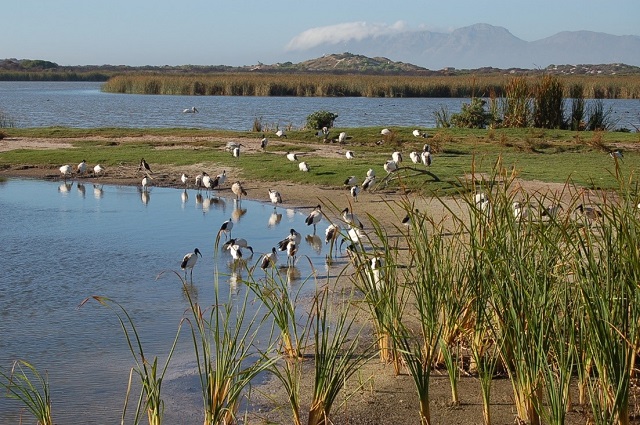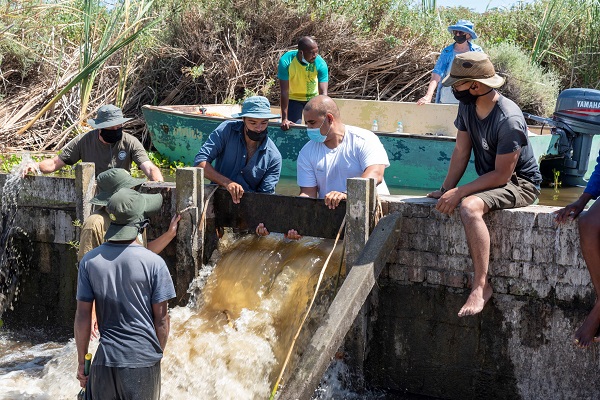International Wetland City status was awarded to Cape Town at the 14th Meeting of the Conference of the Contracting Parties (COP14) to the Ramsar Convention on Wetlands.
This is a huge honour and recognition of the best-practice work that the City has undertaken to date in implementing innovative policies and plans to ensure Cape Town’s wetlands are protected, rehabilitated and restored.
The City of Cape Town’s accreditation as a Wetland City was announced at the Wetland City Accreditation event in Geneva in Switzerland on 10 November 2022, where the Conference of the Contracting Parties to the Convention on Wetlands (COP14) are attending their 14th meeting.
Lorraine Gerrans, the City of Cape Town’s Director: Environmental Management, received the accreditation certificate on the City’s behalf. The accreditation acknowledges the City for ‘taking exceptional measures’ in protecting Cape Town’s wetlands and securing their benefits for Capetonians.
‘The City’s application went through a rigorous review process and was approved, alongside 24 other cities. Cape Town now counts among 43 accredited Wetland Cities around the world.
‘We are truly honoured to be bestowed with this new status, and are committed to keep on carrying out the responsibilities this requires in protecting our precious wetlands. The preservation of our natural assets is a key priority for the City, not only because it is the right thing to do, but also because our natural environment protects us from natural disasters and ensure our future resilience to climate change.
‘I firmly believe that preservation programmes can only succeed in the long-term when we maintain the delicate balance between protecting our natural heritage and biodiversity assets, while also ensuring economic growth and equitable social development. This is a daunting task and one every large city in the world is faced with today.
‘I’m proud to say that in Cape Town we are always looking for innovative plans to resolve challenges, and to maintain, restore, and preserve our wetlands. But, in so doing, we are also working with our surrounding communities to ensure that local jobseekers benefit from the restoration and conservation programmes through skills development initiatives and temporary job opportunities,’ said the City’s Deputy Mayor and Mayoral Committee Member for Spatial Planning and Environment, Alderman Eddie Andrews.
The City also acknowledges that the universal challenges applicable to urban waterways are significant. The City’s commitment to finding long-term solutions is evident by the Mayoral Priority Programme’s focus on water quality improvement of our rivers and wetlands. Over the next three years, at least R350 million will go to remediating recreational vleis as part of the Priority Programme established by Cape Town Mayor Geordin Hill-Lewis to ensure cleaner waterways and protect the environment.
In January this year the City’s Environmental Management Department commenced with the removal of sludge from the Rondevlei weir, situated in the False Bay Nature Reserve. The removal of the organic sludge will significantly improve the health of the Rondevlei wetland system, which is listed as a Ramsar site. Alderman Eddie Andrews (in the white shirt), the City’s Deputy Mayor and Mayoral Committee Member for Spatial Planning and Environment, visited the Rondevlei during the operation and assisted employees. Once the water level has dropped, wading bird species on migration feed along the shallow shoreline edges.
See also Cape Town Green Map







